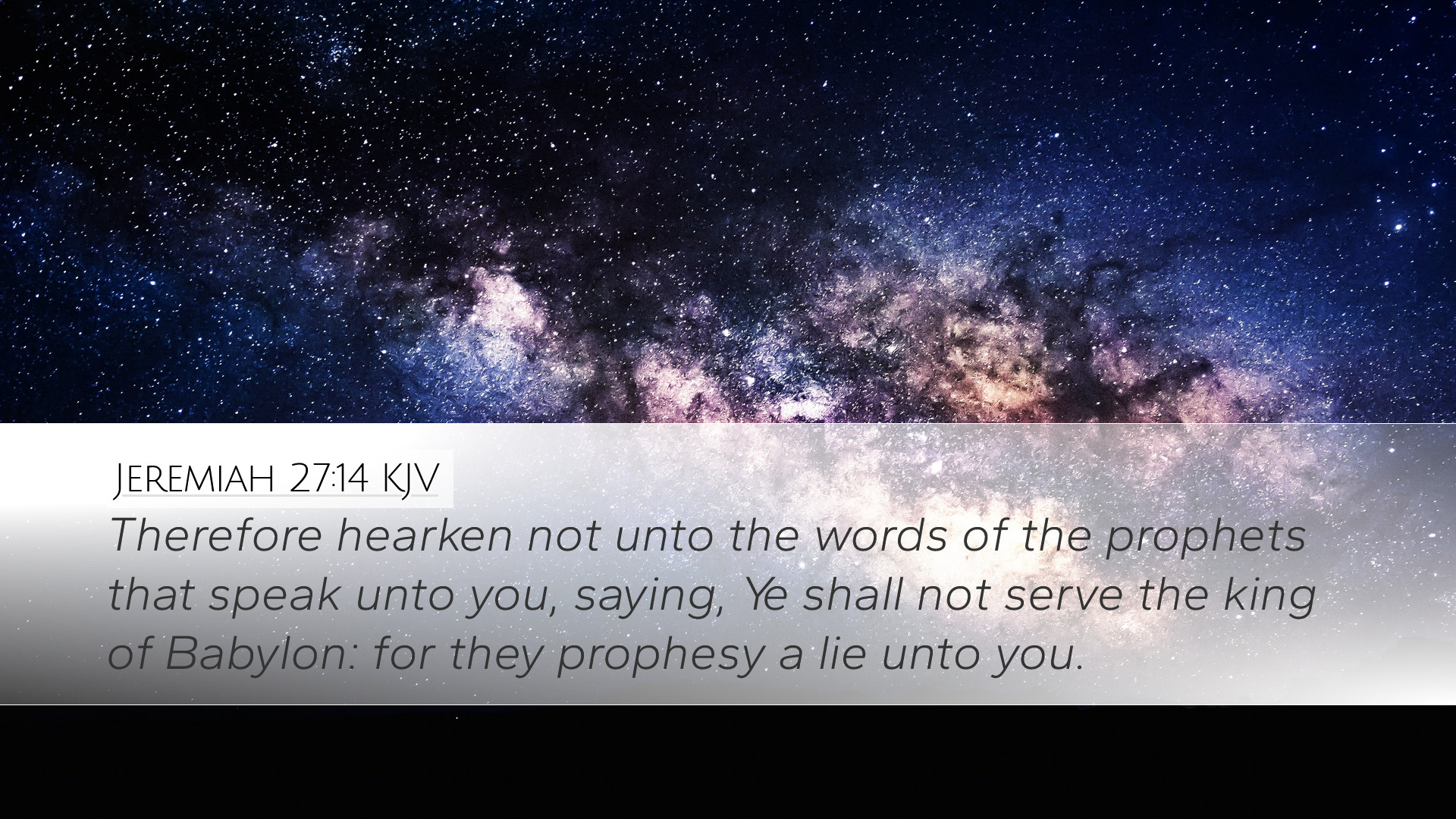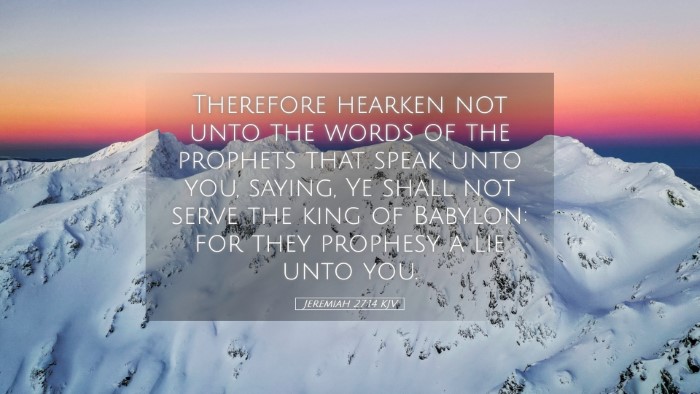Bible Commentary on Jeremiah 27:14
Verse Context: Jeremiah 27:14 states, "And do not listen to the words of the prophets who speak to you, saying, ‘You shall not serve the king of Babylon,’ for they are prophesying a lie to you." This verse is critical in understanding the stance of Jeremiah during a tumultuous time for the nation of Judah.
Overview of the Prophet Jeremiah
Jeremiah, often referred to as the "weeping prophet," served as God's mouthpiece during one of the darkest periods of Israel's history. His prophecies highlighted the impending judgment and exile of the people due to their persistent sin and rebellion against God. In this journey, Jeremiah faced significant opposition from false prophets who contradicted his warnings.
Analysis of the Text
1. The Warning Against False Prophets:
In Jeremiah 27:14, Jeremiah admonishes the people to heed the reality of their situation, contrasting his message with that of false prophets.
Matthew Henry notes that these prophets sought to mislead the people into believing that they would not face the consequences of their actions. This highlights a theological principle: those who communicate God's truth often face opposition from those who distort that truth for personal gain or misguided intentions.
2. The Authority of God’s Will:
Jeremiah's warning stems from a profound understanding of God's sovereignty.
Albert Barnes elaborates that God allowed Babylon to become His instrument of judgment. The phrase "do not listen" suggests that the people had a choice to make regarding whom to trust - the divinely appointed prophet or the deceivers.
3. The Nature of Prophetic Truth:
Adam Clarke emphasizes that true prophecy aligns with God’s plans and purposes, even when it is uncomfortable. Jeremiah’s truth was unpopular, yet it was a critical call for repentance and acceptance of God's decree. The resistance to accepting Babylon's rule illustrated the spiritual blindness of the people.
Theological Implications
Jeremiah 27:14 raises several theological implications relevant for pastors, theologians, and Bible scholars:
- The Danger of False Assurances: The tendency of congregations to gravitate toward messages that affirm their desires rather than challenge them presents a contemporary parallel. It prompts leaders to teach sound doctrine and discernment.
- God’s Sovereignty in Difficult Circumstances: The acceptance of God’s will, even through painful processes, teaches believers about trust and faith in divine sovereignty. This lesson is timeless.
- The Role of the Prophet: The responsibilities of a prophet extend beyond mere foretelling to include calling people to repentance and faithful obedience. This is central to pastoral ministries.
Practical Application
As contemporary believers study this verse, several applications emerge:
- Discernment in Spiritual Matters: Believers are called to discern whom they listen to. Regular engagement with Scripture and sound doctrine is essential.
- Acceptance of God’s Discipline: Understanding that sometimes God's discipline, though painful, is a path toward restoration should encourage believers to cling to faith amidst trials.
- Bravery in Speaking the Truth: Like Jeremiah, pastors and leaders must be courageous to proclaim God’s truth, even against popular opinion or societal norms.
Conclusion
Jeremiah 27:14 serves as a timely reminder of the complexities surrounding spiritual leadership and the prophetic voice in society. In studying this verse, pastors, students, and scholars gain insight into the nature of truth and the responsibilities placed upon those who proclaim it.
This passage encourages a commitment to God's vision for His people, urging a confident trust in His providential care, even in challenging times.


